
Prototype Tooling for Injection Molding
Innovations, Benefits, and Applications of Prototype Tooling
Prototype tooling serves as a key process in the product development lifecycle. This approach emphasizes the rapid creation of molds for fabricating plastic or rubber prototype parts, significantly reducing costs and lead times.
By integrating prototype tooling early in the design phase, you can achieve faster iterations and refinements, propelling products from concept to market with speed and efficiency while eliminating risk by catching design flaws early.
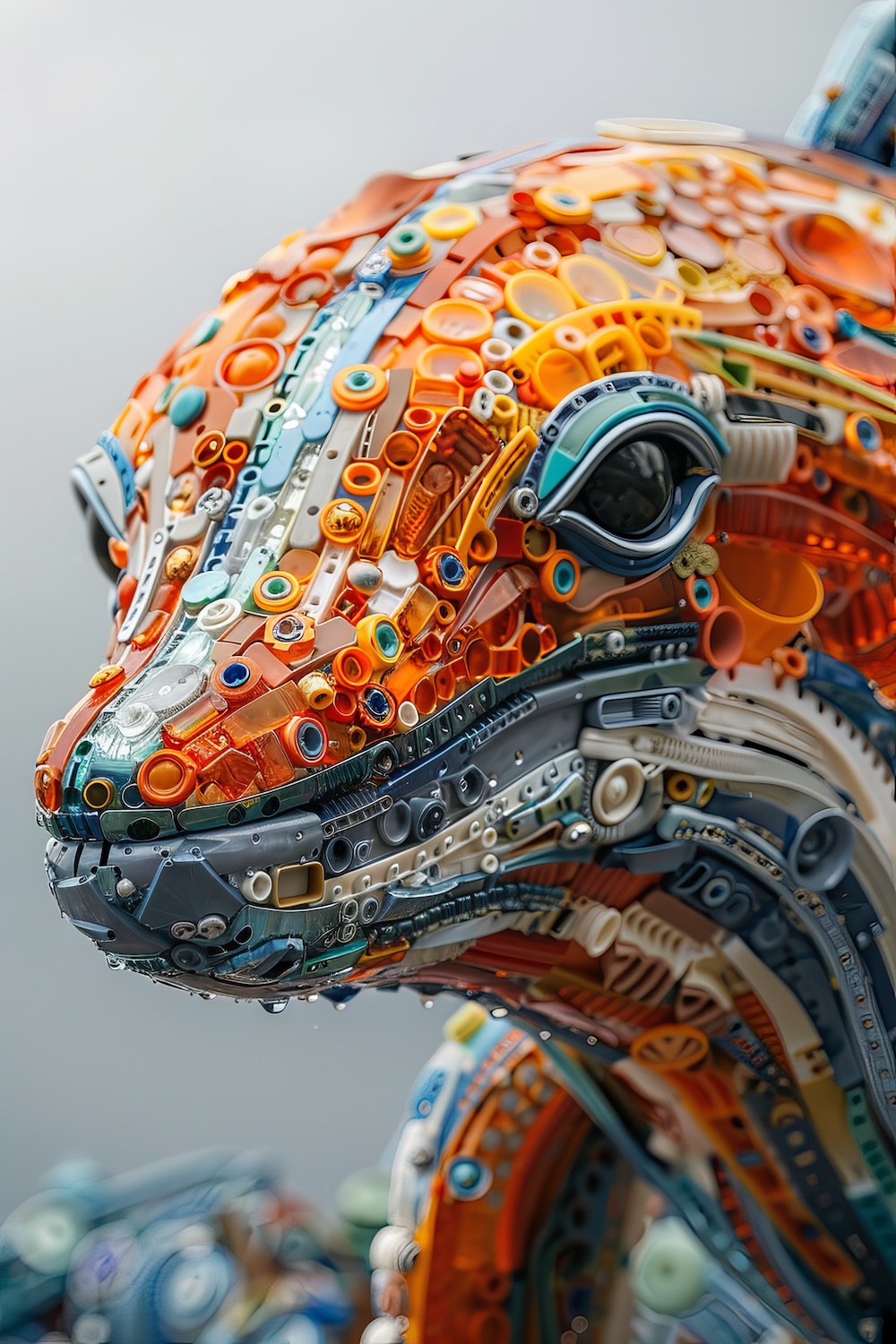
What is Prototype Tooling?
Prototype tooling is a manufacturing process used to create temporary molds that allow for the quick and cost-efficient production of prototype parts. Unlike traditional tooling designed for high-volume part production, prototype tooling focuses on flexibility and speed. This approach enables designers and engineers to produce rapidly and test parts, facilitating iterative improvements based on real-world feedback.
Prototype tooling can be further defined as soft or rapid tooling, each offering unique advantages to the product development cycle.

Soft Tooling and Rapid Tooling: A Closer Look
Soft Tooling: This method involves fabricating molds from softer, less durable materials than those used in final production. Softer metals like stainless steel can be machined faster than harder, production-grade metals. It’s an excellent choice for low-volume production and initial testing phases, allowing for cost savings and flexibility in design changes.
Rapid Tooling: As the name suggests, rapid tooling focuses on speed. It uses advanced manufacturing techniques, such as 3D printing or casting, to produce molds quickly. This method is ideal for producing more prototypes while balancing speed and cost. Part quality is typically not as high with rapid tooling as it is with soft tooling.
Methods and Materials
Prototype tooling involves various materials and methods to create molds for producing prototypes. Each method has advantages and disadvantages, depending on the project’s specific requirements. Here, we explore some types of prototype molds and the materials used to create them, including silicone rubber, aluminum alloy, and soft steel, as well as compare direct and indirect rapid tooling methods.
Direct vs. Indirect Rapid Tooling Methods
Direct Rapid Tooling
Direct methods involve creating the mold directly from CAD data, usually through CNC machining or 3D printing. This highly accurate approach can produce molds quickly for immediate use in prototype production. The primary advantage of direct rapid tooling is its precision and speed, making it suitable for projects with tight timelines. However, the cost can be higher, especially for complex molds that require extensive machining time.
Types of Direct Tooling
3D Printed Molds in Metal and Plastic
Metal: 3D printing technologies like Direct Metal Laser Sintering (DMLS) can create molds for injection molding from powdered aluminum or stainless steel. These molds are suitable for small to medium production runs and can handle high temperatures and pressures. Metal 3D-printed molds allow for complex geometries that might be difficult or impossible to achieve with conventional machining.
Plastic: For very low-volume production or initial testing phases, 3D-printed plastic molds can be a quick and cost-effective option. Materials like high-temperature resins can withstand the injection molding process for a small number of cycles, making them suitable for low-quantity prototyping purposes.
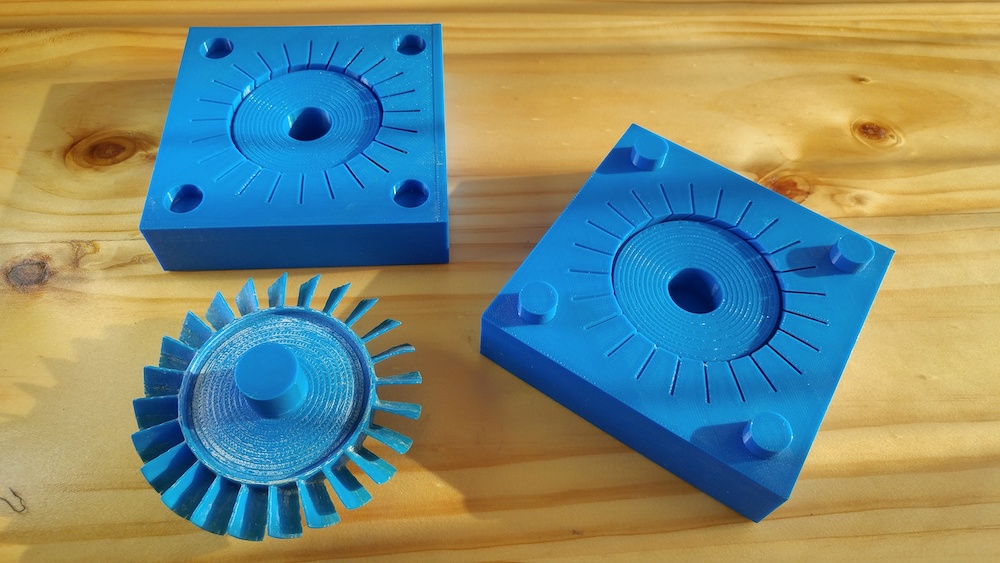
Soft Tooling with Aluminum or Pre-hardened Steel:
Soft tooling involves CNC machining molds from materials that are easier to machine and less costly than the hardened steels used in production tooling. Machining involves removing material from a solid aluminum block to create mold cavities. Aluminum is favored for prototype molds due to its excellent machinability, good thermal conductivity, and lower cost than harder metals like steel. Machined aluminum molds can withstand thousands of cycles, making them suitable for prototyping and small production runs. Aluminum and pre-hardened steel molds can be produced faster and cheaper than their hardened counterparts, making them ideal for prototype and short-run injection molding.
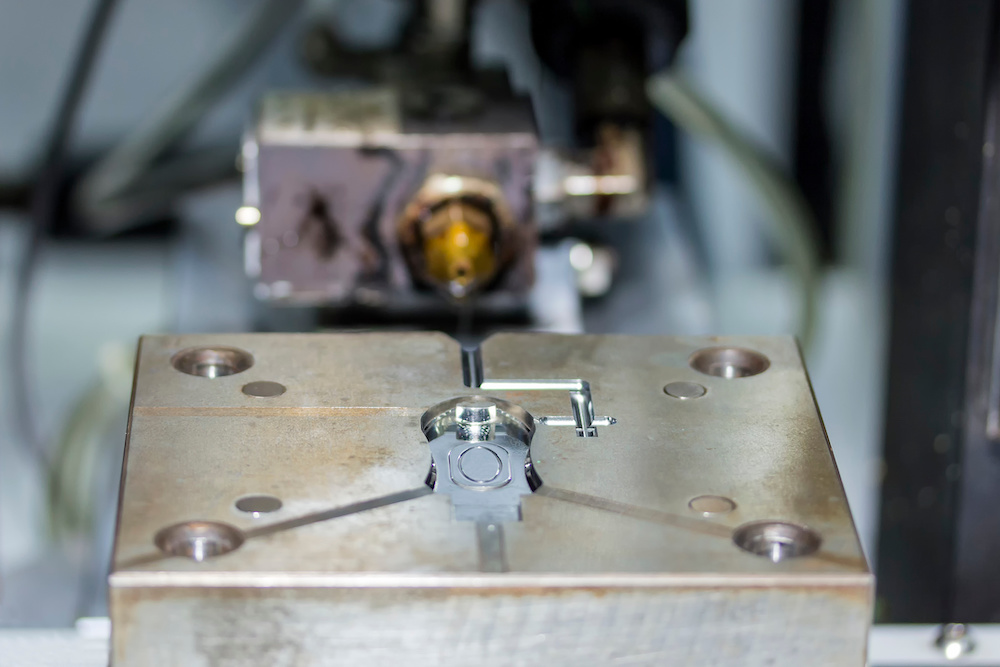
Indirect Rapid Tooling
Indirect methods involve creating a master model, usually through additive manufacturing (3D printing), which is then used to create the mold. Materials like silicone rubber can be used to cast the mold around the master model. The advantage of indirect tooling is its flexibility and the ability to produce complex shapes with undercuts that might be difficult or impossible to machine directly.
Types of Indirect Tooling
Pouring Molds with Silicone for Casting
This method involves creating a master model (often 3D printed) and then encasing it in silicone to create a flexible mold. Once the silicone cures and the master model is removed, the mold can be used for casting resin parts. While not used for injection molding in the traditional sense, silicone molds are excellent for creating prototypes that mimic the properties of injection-molded parts, particularly when using resins that simulate thermoplastics. The downside is that the additional steps can increase the lead time, and the mold’s fidelity to the original CAD model is likely reduced compared to direct methods.
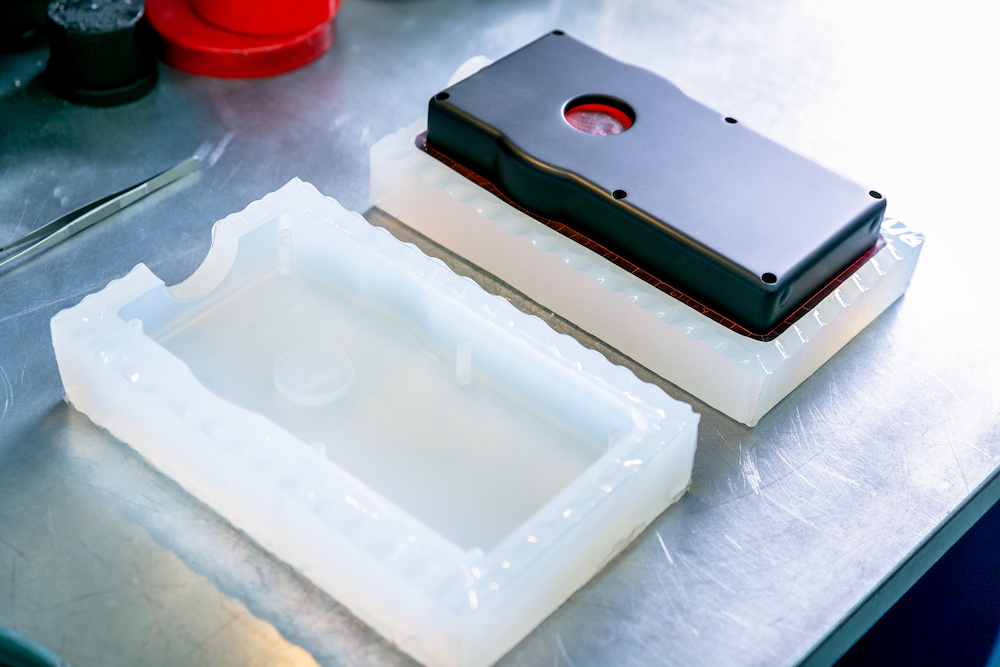
Thermoforming
While thermoforming is a method for shaping plastic sheets over molds, it can also be used to create prototype parts that mimic injection-molded pieces. Some methods of thermoforming can create cavities for casting prototype resins. However, thermoforming might not be directly applicable to creating molds in preparing for injection molding but can be an auxiliary method for creating prototype components.
Composite Molds
Composite molds are made from a combination of materials, such as a silicone mold surface backed by a more rigid support structure. This approach can be used to create prototype molds that offer the flexibility of silicone for easy demolding and the durability of traditional mold materials for the mold base.
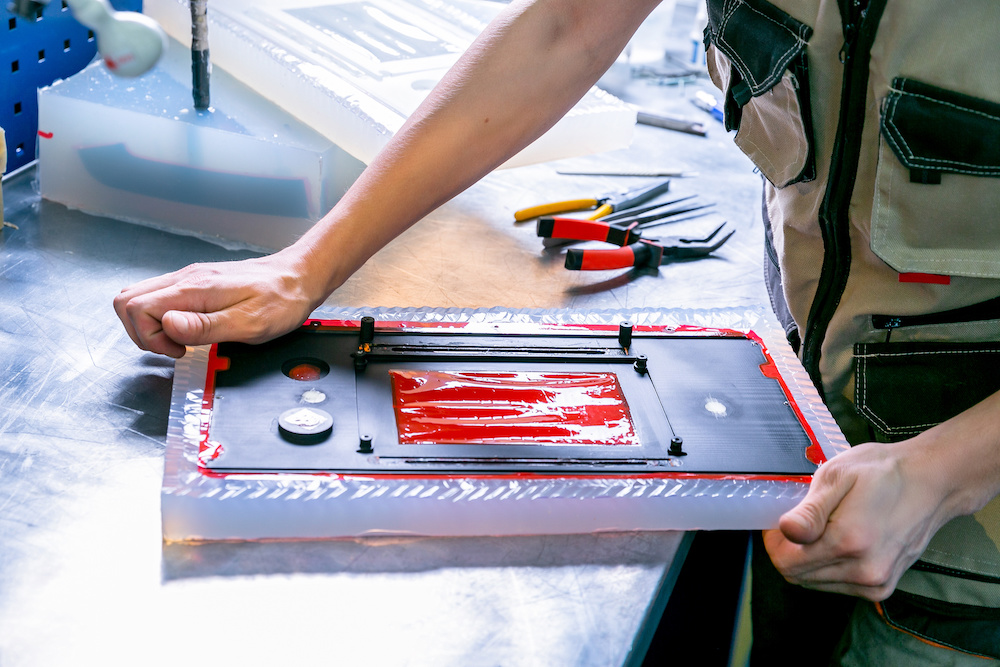
Each of these prototype molding methods has advantages and applications, depending on the part’s complexity, the mold’s required durability, the number of prototypes needed, and the budget. Early-stage prototyping often benefits from faster, less expensive methods like 3D printing or silicone molds, while later stages might require the higher fidelity and durability of machined aluminum or rapid tooling techniques.
Comparison with Alternative Prototyping Methods: 3D Printing and CNC Machining
3D Printing
3D printing offers the advantage of producing complex geometries with minimal waste and without creating a mold. Part iterations happen rapidly; printing service bureaus can produce 3D-printed parts in days. It’s ideal for very low-volume production and prototypes that require intricate details. However, the materials available for 3D printing may sometimes match the properties of materials used in mass production, which can limit their applicability for functional testing. Also, producing hundreds of prototypes can be cost-prohibitive.

CNC Machining
CNC machining is highly versatile and can create prototypes directly from solid material blocks or molds for prototype tooling. It is known for its precision and the ability to use a wide range of materials. While CNC machining is more expensive and time-consuming than 3D printing for complex parts, it offers superior material properties and surface finish. CNC machining will not work to produce elastomeric parts, and, depending on the number of prototypes needed, it may make financial sense to build a quick prototype injection mold instead of machining prototypes.
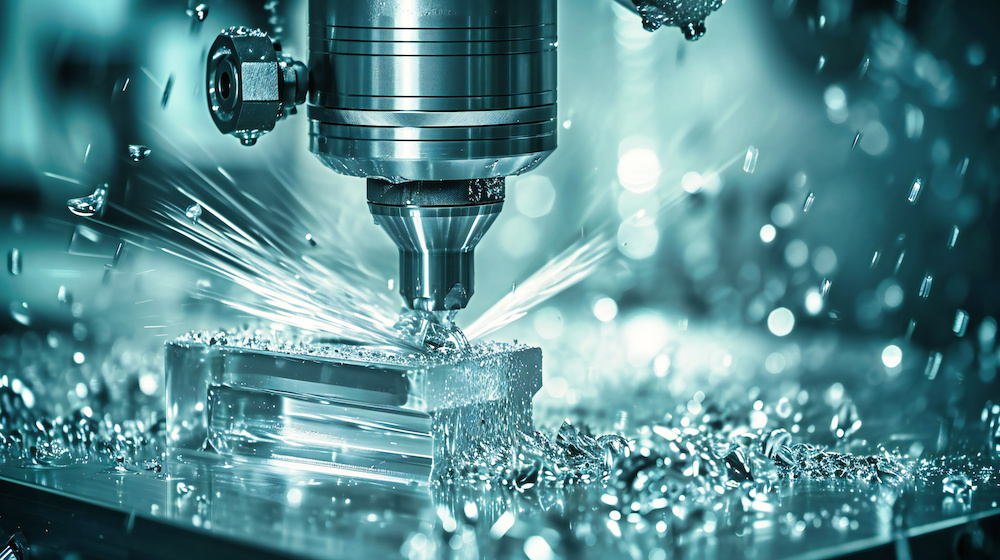
The choice of materials and methods in prototype tooling depends on the project’s specific needs. Silicone rubber, aluminum alloy, and soft steel each offer distinct cost, durability, and production volume advantages. Similarly, direct and indirect rapid tooling methods cater to different aspects of prototype production, balancing accuracy, complexity, and production lead times. Understanding these options allows informed decision-making in the prototype development process, ensuring that the chosen approach aligns with the project’s goals and constraints.
Benefits of Prototype Tooling
Prototype tooling is essential in product development, offering many advantages that streamline the path from concept to market. Its integration into manufacturing workflows has revolutionized how companies approach design, testing, and production. Below are the key benefits of prototype tooling, highlighting its impact on speed, cost savings, flexibility, and early testing capabilities.
Fast Turnaround Times
One of the standout benefits of prototype tooling is the ability to achieve speedy turnaround times. Traditional tooling methods can take weeks or months to produce a mold, but prototype tooling can reduce this to days. This rapid pace enables companies to iterate and evolve their products quickly, keeping them agile in competitive markets.
Cost-Effectiveness for Low-Volume Production
Prototype tooling significantly reduces the initial investment required for product development, especially in low-volume production scenarios. Using prototype molds, companies can avoid the high costs associated with permanent, high-volume production molds. This cost-effectiveness is crucial for startups and established businesses alike, allowing for more financial flexibility and resource allocation to other vital areas of development.
Enables Testing and Validation of Designs
A core advantage of prototype tooling is the capacity to test and validate designs before proceeding to mass production. This early testing phase is invaluable, as it identifies and rectifies potential issues, ensuring that the final product meets all specifications and quality standards. It also permits testing with the materials intended for the final product, providing insights into how the design interacts with the chosen materials under real-world conditions. This is especially true if the part has intricate features, such as snaps or functional seals that will be overmolded.
Supports Iterative Development
Prototype tooling is inherently flexible, supporting an iterative development process. Quick modifications based on feedback are not just possible but encouraged, enabling a dynamic approach to product design. This flexibility ensures that each iteration can be quickly produced and evaluated, accelerating the overall development timeline and increasing the chances of product success.
Rapid Creation of Molds
The rapid creation of molds is another significant benefit, facilitating early and frequent testing and validation phases. This ability to quickly produce molds means that designs can be refined and optimized with minimal delay, ensuring that the final product is as close to perfect as possible.
Lower Mold Costs and Faster Lead Times
With prototype tooling, the costs associated with mold production are significantly lower than those of traditional tooling methods. This cost reduction, coupled with faster lead times, means that companies can test designs and materials without the financial and time constraints that typically accompany product development. This advantage is particularly beneficial because parts are molded with actual production materials, as it allows for a realistic assessment of how the product will perform in its final form.
Prototype tooling offers comprehensive benefits catering to modern product development’s fast-paced, cost-conscious, and quality-driven demands. From the rapid production of molds to the cost-effective nature of low-volume production and the invaluable opportunity to test and validate designs early in the development process, prototype tooling is an indispensable tool in the arsenal of manufacturers aiming for innovation and excellence.
Steps to Producing Prototype Tooling
Prototype tooling bridges the gap between initial design and mass production. This process allows designers and engineers to create functional prototypes that closely mimic the final product, enabling testing, validation, and refinement before or while production tools are being built. Understanding how prototype tooling works—from initial design to the finished product—is essential for appreciating its value and applications.
1
Initial Design and CAD Models
Prototyping begins with a detailed design phase, transforming ideas into precise computer-aided design (CAD) models. These digital models serve as the blueprint for the prototype, detailing its geometry, dimensions, and material specifications. Advanced software tools allow designers to simulate the behavior of the prototype under various conditions, helping to identify potential issues early in the process.
2
Selecting the Right Technology and Materials
Once the design is finalized, the next step is selecting the appropriate technology and materials for mold creation.
Direct and Indirect Molding Methods: Direct methods involve creating the mold directly from the CAD model, while indirect methods may use an intermediate step, such as creating a master pattern, which is then used to form the mold. These methods were discussed in the previous sections.
3
Mold Creation and Prototype Production
With the technology and materials selected, the next step is the actual mold creation. This involves using the chosen method to fabricate a mold that replicates the design’s internal and external geometries. Once the mold is ready, it can be used for injection molding to produce the prototype parts.
4
Testing, Validation, and Refinement
The prototype parts produced are then subjected to rigorous testing and validation processes. This phase is crucial for assessing the design’s performance, durability, and suitability for its intended application. Feedback from this stage informs any necessary refinements to the design or the materials used, ensuring that the final product will meet all requirements and quality standards.
5
Towards Mass Production
Once the prototype has been optimized and validated, the insights gained from the process guide the transition to mass production. The prototype tooling process, thus, not only validates the design but also ensures that the path to manufacturing is as smooth and efficient as possible, significantly reducing the time and cost associated with bringing new products to market.
Applications Across Industries
Prototype tooling is widely used as a method of innovation and development across many industries, enabling companies to refine and perfect their products with unprecedented speed and efficiency. The versatility of prototype tooling services, such as those offered by Protoshop Inc., is evident in its widespread application across sectors as diverse as aerospace, automotive, and medical. Each of these industries benefits from the ability to rapidly prototype designs, test functionality, and iterate on feedback, ultimately accelerating the time-to-market for new and innovative products.
Aerospace Industry
In the aerospace sector, prototype tooling allows for the meticulous testing and validation of components subject to extreme conditions, such as temperature fluctuations and mechanical stress. This capability is critical for ensuring aerospace parts’ safety, performance, and durability. Prototype tooling facilitates the exploration of new materials and designs, driving advancements in lightweight and fuel-efficient aircraft components, thereby supporting the industry’s ongoing pursuit of innovation and sustainability.
Automotive Industry
The automotive industry benefits significantly from prototype tooling in its quest for higher efficiency, performance, and safety standards. Prototype tooling enables manufacturers to produce quickly and test parts, from engine components to exterior body panels. This rapid iteration process is crucial for developing new technologies, such as electric vehicle (EV) components and advanced driver-assistance systems (ADAS), ensuring that automotive companies can stay at the forefront of the industry’s shift towards electrification and autonomous driving.
Medical Industry
In the medical sector, the ability to prototype and test medical devices quickly and accurately can expedite the regulatory approval process and bring innovative treatments and diagnostic tools to market faster. Rapid development is crucial for addressing emerging health challenges and improving patient care. Prototype tooling supports the creation of custom implants, surgical instruments, and diagnostic devices, demonstrating its critical role in advancing medical technology and patient outcomes.
At Protoshop Inc., we specialize in the rapid fabrication of high-precision prototype injection molds and molded parts, harnessing the power of prototype injection molding tooling to streamline the production of high-quality prototypes. Our focus is on delivering cost-effective, rapid solutions that enable our clients to test and validate their designs with production-equivalent parts before committing to the expense of mass production. Through our expert services, we play a crucial role in de-risking product development, ensuring that every step from initial design to final manufacturing is optimized for success.
Choosing the Right Prototype Tooling Partner
The ideal partner should have the technical expertise and technology to realize your vision and the capability to do so within your timelines. Protoshop Inc. represents the best choice for companies looking for exceptional prototype injection mold tooling services, emphasizing the critical factors of expertise, technology, and turnaround times.
Expertise in Prototype Tooling
Protoshop Inc. brings experience and specialized knowledge to the table with our team of experts offering invaluable insights into the design for manufacturability (DFM). This expertise ensures that your injection molded prototypes meet the desired specifications and are optimized for the most efficient and cost-effective production process. The team’s ability to provide detailed design for molding analysis means potential issues are identified and addressed early in the development phase, saving time and resources.
State-of-the-Art Technology
Protoshop Inc. offers unmatched precision and quality by leveraging the latest prototype injection molding technology. Our facilities have advanced machinery for mold fabrication and injection molding, ensuring high-quality prototypes that replicate final products. This technology allows for the production of intricate molds and supports a wide range of materials, making it possible to explore various design options and material properties during the prototyping phase. Integrating cutting-edge technology with expert craftsmanship allows Protoshop to tackle projects of any complexity, delivering results that exceed expectations.
Rapid Turnaround Times
Protoshop Inc. stands out for our ability to deliver rapid prototype injection molding services without compromising quality. Mold fabrication and injection molding services under one roof significantly reduce the time from design to prototype. Protoshop can promise many molds in just a week and parts within 1-3 days post-mold completion, a testament to their commitment to quick turnaround times. This efficiency is crucial for companies looking to accelerate their product development process and gain a competitive edge by bringing products to market faster.
Comprehensive Support and Flexibility
Beyond our technical capabilities, we offer unparalleled customer support and flexibility. Our team works closely with clients to understand their needs, offering tailored solutions that best fit the project requirements. Whether it’s assistance with material selection, guidance on design optimization, or support for low-volume production and intricate molds, Protoshop is committed to providing the support needed at every stage of the prototype tooling process.
Prototype tooling offers comprehensive benefits catering to modern product development’s fast-paced, cost-conscious, and quality-driven demands. From the rapid production of molds to the cost-effective nature of low-volume production and the invaluable opportunity to test and validate designs early in the development process, prototype tooling is an indispensable tool in the arsenal of manufacturers aiming for innovation and excellence.
Part Information & Lead Time

Lead Time
Typically, in 1 week, we will indicate the lead time when we provide your quote.

Maximum Molded Part Size
Part may be up to 8″ x 6″ x4″ (200 x 150 x 100 mm)

Maximum Part Volume
Shot volume up to 6 oz (170 g)

Tolerance
Typically <0.004″ (0.1 mm).
Tolerance of 0.001″ (0.025 mm) is possible with certain materials and part geometry. Let’s discuss your application.
Contact Protoshop Inc. for Prototype Injection Molding Services
Prototype tooling is more than just a step in the manufacturing process; it greatly de-risks product development and can be used to create a buzz for new products before they hit the market. By showcasing prototypes in digital campaigns, companies can gauge consumer interest, gather feedback, and build anticipation, all contributing to a more successful product launch. Whether you’re in the initial stages of design or ready to finalize your product for mass production, our team is equipped to support your project with precision and care.
If you’re looking to leverage the power of prototype tooling to reduce costs, accelerate your product development timeline by reducing risk, and enhance your digital marketing strategy, look no further than Protoshop Inc. Our team is ready to help you navigate the complexities of prototype injection molding and bring your innovative ideas to fruition. Contact us today to discuss your project and how we can assist in turning your concepts into reality. Let Protoshop Inc. be your partner in innovation and success.


